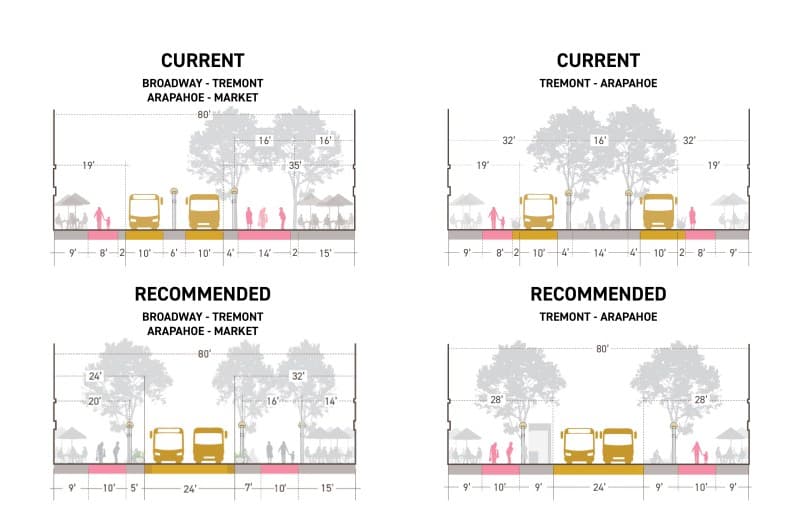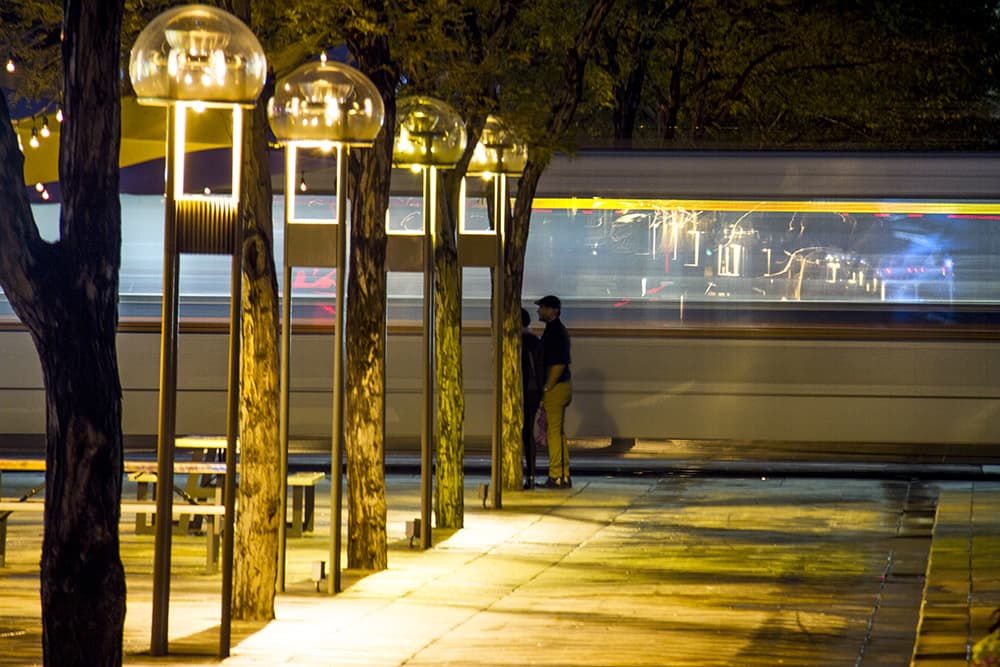Whether you view the 16th Street Mall as a tourist trap, a transit corridor, a place to play chess, or just a place to relive Y2K at Coyote Ugly, government officials and business groups have been trying to revamp the strip for about a decade.
On Thursday the transportation department announced that the city has offered a contract to PCL Construction Services. If approved by the Denver City Council, the agreement -- worth over $100 million, according to DOTI, and possibly up to $130 million according to a summer estimate from a city finance official -- will clear the way for the Canadian company to redesign and rebuild the nearly 40-year-old street in the Central Business District.
The contractor will repair the dilapidated and leaky pavement, which costs RTD about $1 million a year to maintain. Bus shuttles will be consolidated in the middle of the street, eliminating the center-line pedestrian strip to widen the sidewalks on either side. Crews will replace a water line from the 1800s while above, new trees will be planted.

Taxpayers will fund the changes with federal, state and local money, including tax increment financing -- money siphoned from tax payments in various pockets of downtown in anticipation of higher real estate values down the road -- through the Denver Urban Renewal Authority. DURA is no longer collecting taxes for the project.
"We're thrilled to have reached this latest milestone on this landmark project that improves safety and mobility along the mall and attracts commuters and visitors with interesting new spaces and places for people to enjoy," said Eulois Cleckley, the head of Denver's Department of Transportation and Infrastructure, in a prepared statement. "The contract we present to Council in the coming weeks will reflect a decade of planning and recent input from groups representing business owners, workers, community members and people with disabilities."
DOTI expects construction to begin later this year and finish in 2024.
This article was updated to clarify that DURA is no longer collecting taxes for the project.












